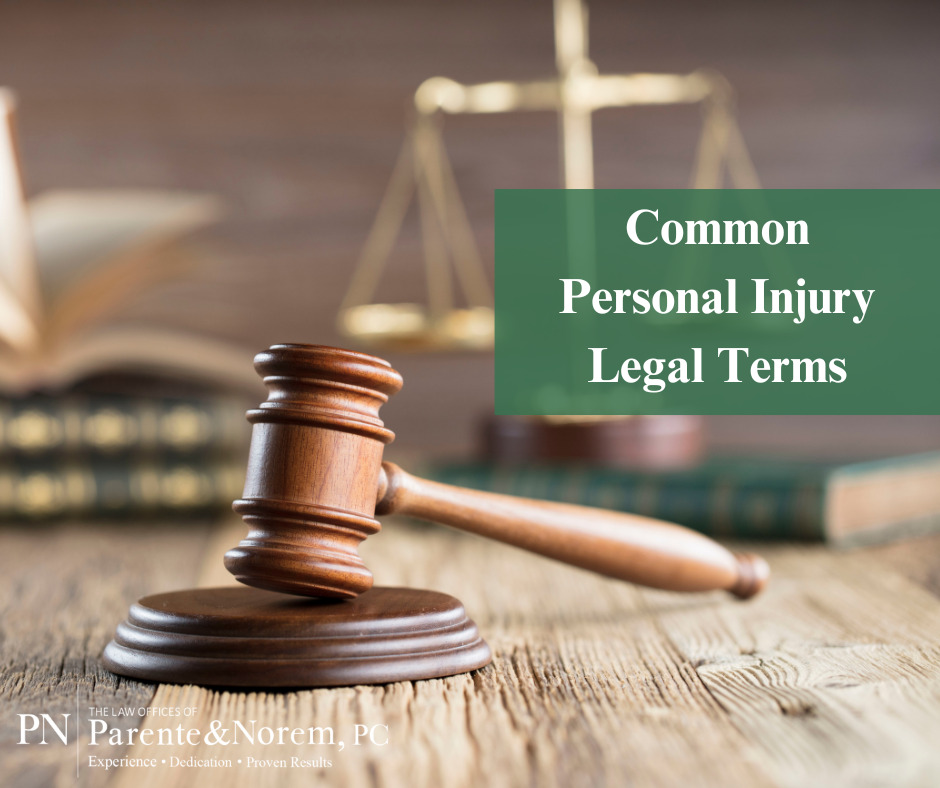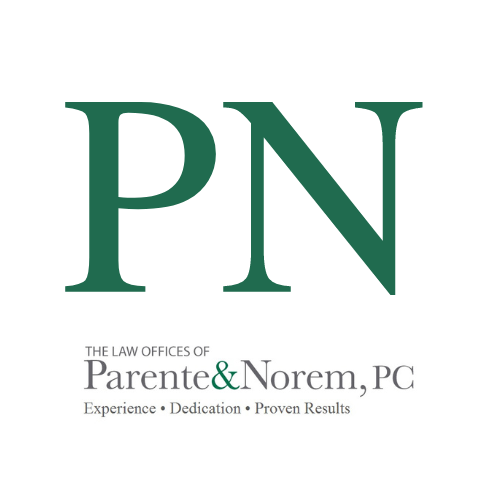
P&N BLOG | Common Personal Injury Legal Terms
When you’ve been injured due to someone else’s negligence, parts of the process can be overwhelming; with terms you may have never heard before. To help you navigate these legal terms, below we have compiled a list of the most common terms you may encounter during your personal injury case.
Affidavit: A formal written statement declared under oath.
Arbitration: A non-judicial legal procedure where parties present their dispute to a neutral arbitrator outside of court.
Attorney-Client Privilege: The confidentiality of communications between an attorney and their client.
Complaint: A legal document filed to initiate a civil lawsuit, detailing the plaintiff’s allegations against the defendant and their requests for relief.
Contingency Fee: A fee arrangement where an attorney is paid a percentage of the recovery amount only if they win the case. No fee is charged if the attorney is unsuccessful.
Defendant: The party against whom a lawsuit is brought.
Deposition: Oral testimony taken under oath, where one party questions another party or relevant witnesses.
Discovery: The pre-trial phase where parties gather facts and information to build their case. This can include written questions (interrogatories), requests for production, or oral testimony (depositions).
Docket: The court’s calendar of scheduled actions and hearings.
Evidence: Information presented to support or prove a case.
Expert Witness: A witness with specialized knowledge who provides testimony to support a party’s case.
IDPH: Illinois Department of Public Health.
Independent Medical Evaluation (IME): A medical examination conducted by a doctor chosen by the insurance company or the opposing party to assess the severity of injuries in a personal injury or workers’ compensation case.
Interrogatory: Written questions exchanged between parties in a lawsuit to uncover important information. A type of written discovery.
Jury: A group of people selected to hear the evidence in a trial and make a decision based on the facts presented.
Lawsuit: A legal proceeding between two parties in a court of law.
Liability Insurance: Insurance that provides compensation for injuries or property damage caused by the policyholder’s negligence.
Medical Malpractice: Negligent care by a healthcare provider that fails to meet the established standard of care, resulting in patient injury or death.
Motion: A formal request by one party for a judge’s ruling on an issue, made orally or in writing during a lawsuit.
Personal Injury: Injury to one’s body, mind, reputation, or emotions, as opposed to property.
Plaintiff: The party who initiates a lawsuit against the defendant.
Power of Attorney: A document granting legal authority to act on someone else’s behalf.
Product Liability: Legal responsibility of manufacturers for damages or injuries caused by defective products.
Sepsis: A severe bacterial blood infection, also known as septicemia.
Settlement Mediation: A dispute resolution process where a neutral mediator helps parties reach a settlement to avoid court.
Statute of Limitations: The time period within which a plaintiff must file a lawsuit.
Summary Judgment: A court decision resolving a lawsuit in favor of one party based on the law, without a full trial, usually due to no material facts being disputed.
Summons: A legal document issued by a court informing the defendant of a lawsuit.
Testimony: Evidence given by a witness under oath during a deposition or trial.
Tort: Negligent or wrongful conduct causing injury to another person for which damages may be sought.
Witness: A person who provides testimony under oath in legal proceedings, offering firsthand experience or expert opinion.
Workers’ Compensation: A form of insurance providing wage replacement and medical benefits to employees injured during their employment in exchange for mandatory relinquishment of the employee’s right to sue their employer.
Wrongful Death: A death caused by another’s negligence, leading to a lawsuit usually filed by the deceased’s family or beneficiaries.
As always, the staff at The Law Offices of Parente & Norem, P.C. is here to answer any questions you may have throughout the duration of your personal injury case. If you would like to speak with our office, call us at 312.641.5926 or fill out a contact form right here on our website.
Latest Posts
P&N BLOG | What To Expect During Your Free Case Evaluation
When you or someone you know has been injured due to negligence, the thought of hiring a personal injury attorney can be intimidating. At The Law...
P&N BLOG | What To Expect During Your Free Case Evaluation
P&N BLOG | Who’s at Fault? Understanding Fault in Personal Injury Cases
When you’re injured due to someone else's negligence, understanding who is legally at fault is critical for seeking compensation. Determining...
P&N BLOG | Navigating Emotional and Psychological Injuries
When people think of personal injury, physical damage often comes to mind—broken bones, bruises, or surgeries. However, what many don’t...
